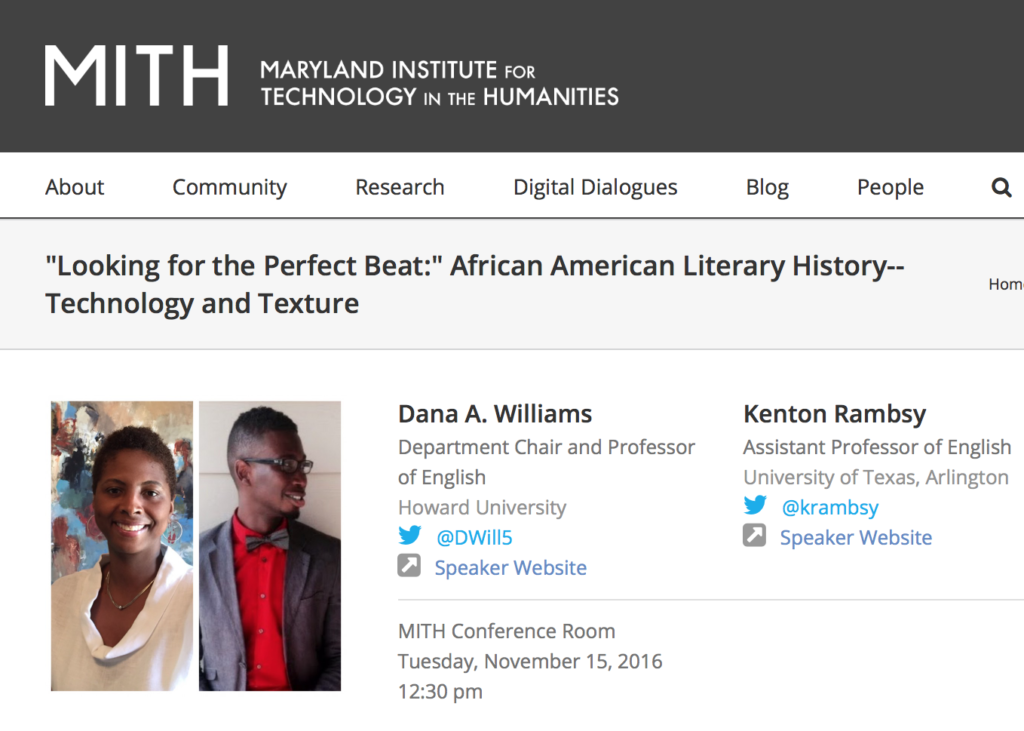Looking for the Perfect Beat (2016)
Institute Faculty & Invited Talks
“Looking for the Perfect Beat:” African American Literary History–Technology and Texture
Dana Williams & Kenton Rambsy
Maryland Institute for Technology in the Humanities (MITH)
College Park, Maryland
November 15, 2016
https://archive.mith.umd.edu/mith-2020/dialogues/dd-fall-2016-dana-williams-kenton-rambsy/
 Patterns in literary scholarship suggest that serious considerations of a literary period do not fully begin until at least a generation after its emergence. Accordingly, meaningful scholarship on African American literature since 1970 is only now beginning to slowly emerge. Scholars interested in this period face two significant challenges. First, the sheer volume of literature published after 1970 can be overwhelming, so identifying a specialty area around which to acquire deep expertise is at once critical and limiting. Second, since literary periods are themselves often nebulously constructed, developing literary histories for a contemporary period can quickly dissolve into competing contrivances, particularly if/when primary source material to document many of its ideals and common threads prove elusive.
Patterns in literary scholarship suggest that serious considerations of a literary period do not fully begin until at least a generation after its emergence. Accordingly, meaningful scholarship on African American literature since 1970 is only now beginning to slowly emerge. Scholars interested in this period face two significant challenges. First, the sheer volume of literature published after 1970 can be overwhelming, so identifying a specialty area around which to acquire deep expertise is at once critical and limiting. Second, since literary periods are themselves often nebulously constructed, developing literary histories for a contemporary period can quickly dissolve into competing contrivances, particularly if/when primary source material to document many of its ideals and common threads prove elusive.
Arguably, the clash of too much written material to claim mastery of and too little awareness of primary resources related to the desired specialty area has resulted in an unnecessary muting of key discourses that shaped this highly influential period. Digital Humanities practices, however, can help manage this challenge, thereby giving voice to these key discourses. Ultimately, Williams and Rambsy contend that data management (technology) can be an essential tool for constructing a substantive literary history with a texture reflective of the period’s ripe content and contexts. As a case in point, the presentation focuses specifically on those texts Toni Morrison brought into print as Senior Editor at Random House Publishing Company as the specialty area around which the presenters have significant expertise and for which a singularly unique literary history can be constructed.